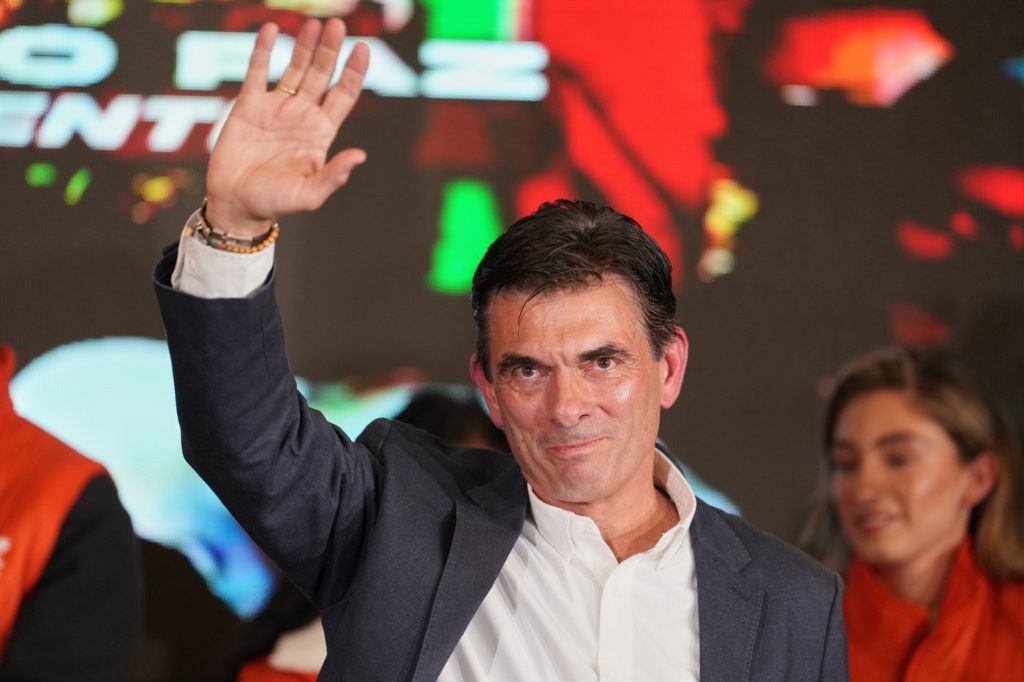LA PAZ, Bolivia (AP) — Three months ago, Rodrigo Paz was a relatively unknown opposition senator in Bolivia, largely defined by his father's legacy and a mixed track record as a mayor. However, in a surprising turn, Paz emerged victorious in the presidential runoff election, becoming the first conservative president of Bolivia in two decades. He succeeded in defeating former President Jorge “Tuto” Quiroga, and will officially take office on November 8, 2025.
Paz's election comes at a critical time as Bolivia grapples with a failing economy, a situation stemming from the past 20 years of governance by the Movement Toward Socialism (MAS) party, founded by former President Evo Morales. The MAS party enjoyed considerable support during the commodities boom of the early 2000s. However, troubles emerged as natural gas exports declined, leading to the collapse of its economic policies characterized by generous subsidies and a fixed exchange rate. With voters facing severe economic challenges, including dwindling supplies of U.S. dollars and fuel shortages, Paz promised to implement reforms aimed at revitalizing the economy in a more measured manner compared to Quiroga's approach, which leaned towards aggressive fiscal reforms backed by an International Monetary Fund (IMF) bailout.
Rodrigo Paz, 58, is the son of former President Jaime Paz Zamora, who served from 1989 to 1993. Born in Santiago de Compostela, Spain, to a Spanish mother, Paz grew up influenced by his father's involvement in Bolivian politics. Jaime Paz Zamora, originally a leftist, shifted his political stance during his presidency, promoting free-market reforms that garnered both investment and disappointment among his former supporters due to rising inequality and unemployment. Rodrigo began his political journey in his father's party but eventually realigned himself with conservative, business-friendly principles. He had served in the lower house of Congress and as mayor of Tarija from 2015 to 2020.
However, Tarija does not entirely support its native son, as seen in the recent elections where his party lost in the region, despite achieving victories in other areas of Bolivia. During his term as mayor, Paz modernized urban infrastructure but faced backlash for public sector layoffs that alienated working-class residents.
Paz’s rise from political obscurity to the presidency has been remarkable. Initially, he had struggled in the polls and was not considered a formidable candidate at the start of the electoral campaign, missing out on early debates. However, his campaign gained momentum when he appointed Edman Lara, a former police captain, as his running mate. Lara's compelling backstory of being dismissed from the police for exposing corruption resonated with voters and bolstered Paz’s anti-corruption message.
The duo ran a grassroots campaign, prioritizing direct engagement with voters. Contrasted with Quiroga's wealthy, elitist image, Paz and Lara garnered support by highlighting their relatability and commitment to fostering “capitalism for all.” Despite plans to implement tough economic measures like eliminating fuel subsidies and devaluing the currency, their populist campaign tone reassured voters that these changes would occur gradually, while also promising cash assistance to the underprivileged.
In a notable shift, Paz has expressed a strong desire to improve Bolivia's relations with the United States, signifying a departure from the long-standing anti-U.S. sentiment under Morales. This diplomatic pivot, discussed during Paz's visits to Washington, comes as U.S. Secretary of State Marco Rubio stated that Paz's victory represents a transformative opportunity for cooperation on shared global priorities, including immigration, investment, and security.











